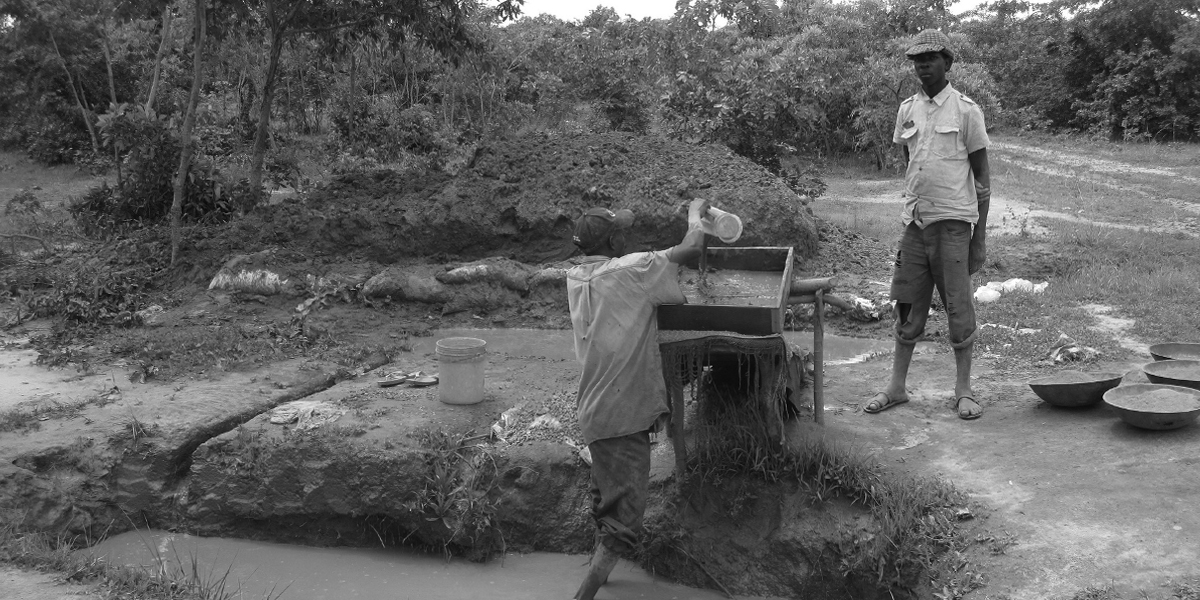Mind the justice gap: The abuses British companies get away with overseas
Today the Global Law Summit opens in London. This high profile conference, backed by the government, brings together lawyers and business people to commemorate 800 years since Magna Carta – and to do a bit of public relations on behalf...
Today the Global Law Summit opens in London. This high profile conference, backed by the government, brings together lawyers and business people to commemorate 800 years since Magna Carta – and to do a bit of public relations on behalf of British law firms.
There’s been some criticism of the conference. But in this blog I want to raise a different point. I want to explore the gap in access to justice that exists for people who’ve been harmed by British businesses operating in countries with weak legal systems.
Here’s a case which illustrates the problem:
The North Mara gold mine in north-west Tanzania is owned and run by a UK-registered company. This huge open cast mine is located in a remote but densely populated area. Local people have always relied on small-scale mining to supplement their meagre income from farming, and after the mine opened inevitably some have gone onto the mine’s waste dumps to try to find a few gold-bearing rocks. The company hired the Tanzanian police to provide security. In repeated incidents the police have opened fire with live ammunition. At least 16 people have been killed in the last six years and more have been seriously injured.
Would a company be allowed to get away with something like this if it was based in the UK? Clearly not. But because the mine is in a developing country, without a strong judicial system, the victims and their families had no clear route to getting justice.
With the support of the Legal and Human Rights Centre in Tanzania, and London law firm Leigh Day a few victims were able to bring a case to the English courts. This recently resulted in an out-of-court settlement with the company. The settlement is subject to a confidentiality clause, so unfortunately the deterrent effect on other companies’ practice is limited. I should point out that the company has always claimed that they were not responsible for the shootings, and in settling the case has made no admission of liability.
Other victims of corporate abuse in countries with weak judicial systems have not been able to get their cases heard. And that means that companies which continue to perpetrate abuses are not held to account.
This lack of accountability is increasingly significant. As Western companies have grown and internationalised over the past couple of decades, the impact they are having on people around the globe has grown too. But while profits flow, accountability does not.
The gap in accountability is well known. The UN Guiding Principles on Business and Human Rights, published more than three years ago, established that access to remedy is vital. And the UK government’s own National Action Plan reiterates that the state duty to protect human rights includes ensuring access to remedy.
But so far, these words haven’t been accompanied by any significant action. And in the absence of serious political leadership, the buck is being passed between civil servants in the Department of Business, the Foreign Office and the Ministry of Justice.
Fair trade organisation Traidcraft is working with others to draw attention to this gap, and calling on the next UK government to take action on three fronts:
- Make it possible to bring criminal prosecutions in the UK against British companies that abuse human rights in other countries
- Remove the barriers which stop people from poor communities bringing civil cases in the UK courts
- Ensure that companies can also be held to account effectively outside the court system.
The Magna Carta enshrined the principle that everyone was equal before the law – even the King – and that all should have access to the law. ‘To no one will we sell, to no one will we refuse or delay, right or justice.’
Today’s Summit celebrates the ‘Rule of Law as the cornerstone of a fair and just society’. We are proud of the UK’s legal tradition, but recognise that too many overseas victims of corporate abuse by UK companies are denied a hearing in the UK. Our political parties now need to set out what they would do to make access to remedy a reality

